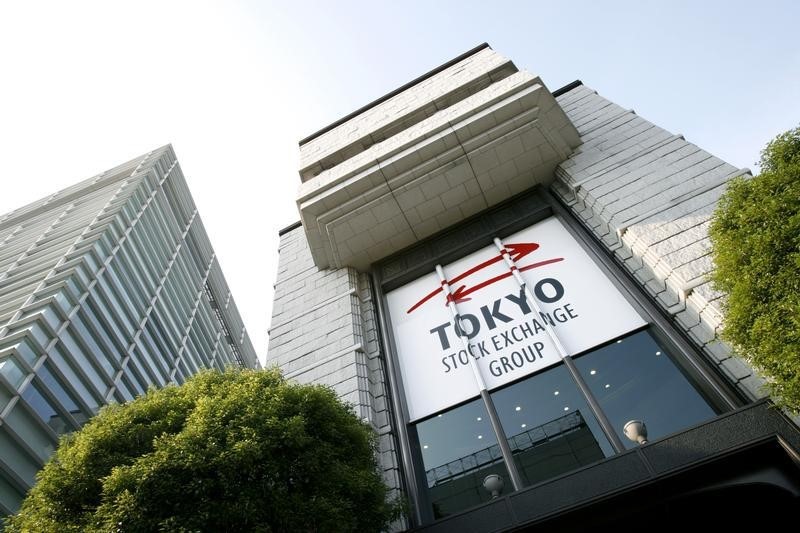This post was originally published on this site
https://i-invdn-com.investing.com/news/LYNXMPEA620A7_M.jpg
The Nikkei 225 index fell 0.8%, while the broader TOPIX index shed 0.2%, drifting further away from the 33-year peaks hit earlier this week.
A strong first-quarter earnings season and dovish signals from the Bank of Japan had drawn a flurry of buying into Japanese stocks over the past two weeks. The country is also the only major economy to still retain ultra-low interest rates this year, which has kept local liquidity conditions high.
An endorsement for Japanese stocks by Berkshire Hathaway Inc’s (NYSE:BRKa) Warren Buffett had benefited sentiment towards local stocks, with foreign investors accounting for a bulk of the Nikkei’s recent rally. Buffett in particular praised the country’s big five trading houses, and had also taken stakes in the firms.
Analysts also cited improved corporate governance measures by the Tokyo Stock Exchange as a factor behind the rally, while a weak yen greatly benefited export-oriented Japanese stocks, which account for a large portion of the Nikkei.
But a Reuters poll forecast some consolidation in Japan’s benchmark index this year, with the Nikkei expected to slide 4% from 33-year highs to the 30,000 level by end-2023.
The index has also faced increased resistance this week amid growing fears of a U.S. debt default, as well as speculation that its recent rally has run its course.
Markets also fear that weakness in China, which is a major export market for Japan, could present headwinds to Japanese exporters this year. China is struggling to shore up economic growth despite the lifting of anti-COVID measures earlier this year.
On the other hand, the Japanese economy benefited from reopening its borders as demand for tourism shot up and supported the country’s services sector. This also saw the economy grow more than expected in the first quarter of 2023, albeit slightly.

